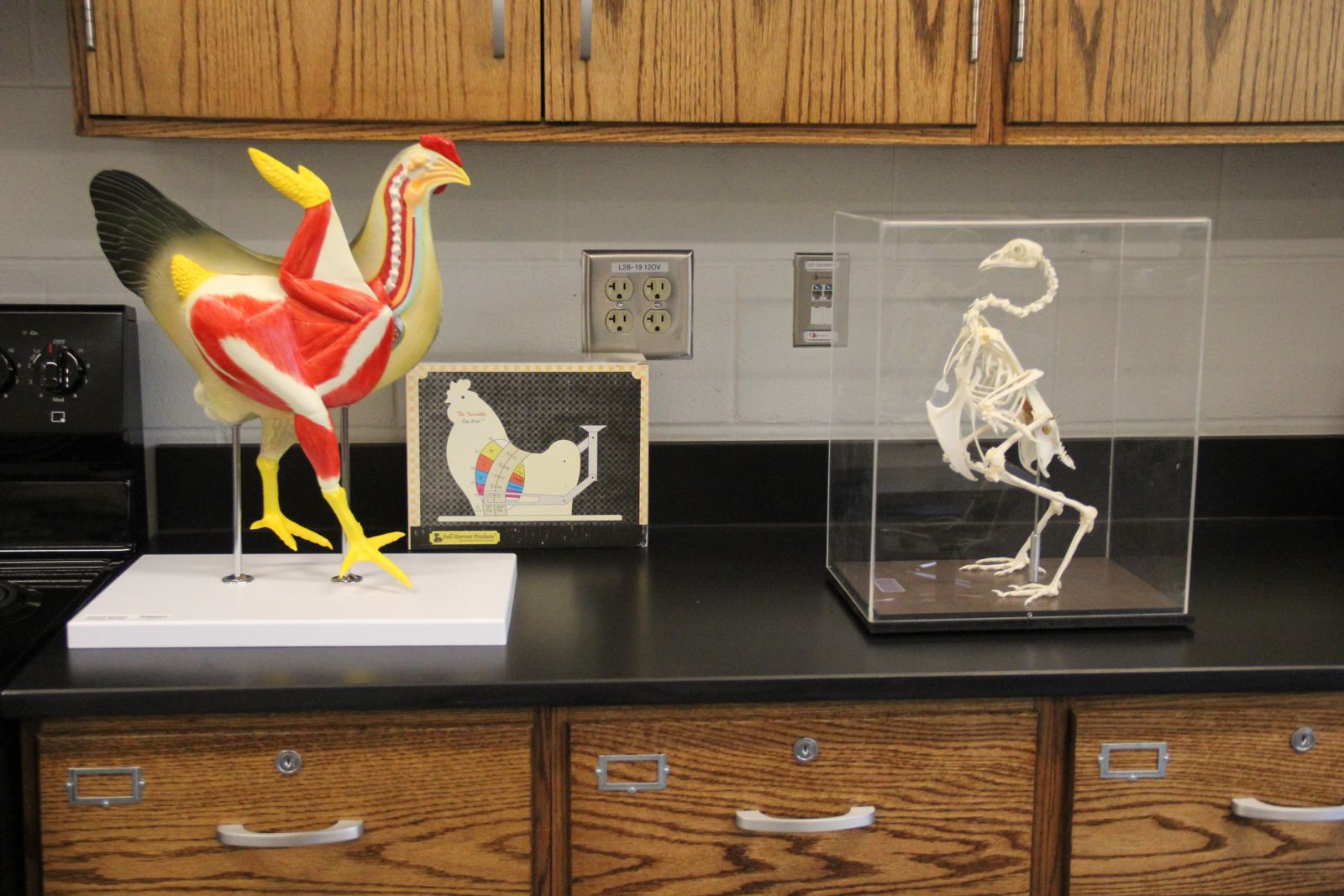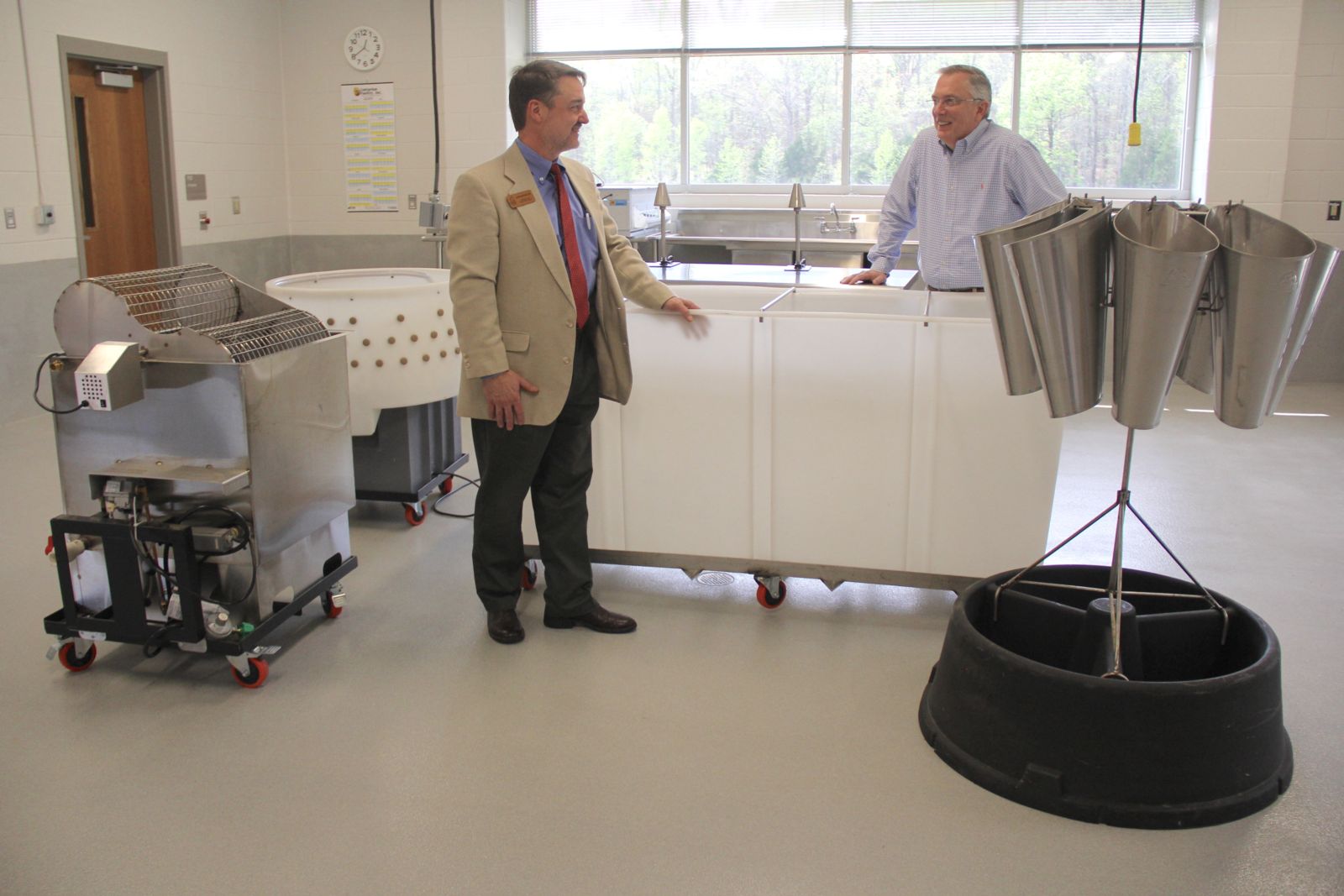GFB News Magazine
Athens Technical College prepares students for agricultural careers
Posted on May 10, 2023 8:00 PM
Article & Photos by Jennifer Whittaker
Students who want a career in agriculture but feel a four-year degree isn’t the right fit have another option at Athens Technical College (ATC).
“Athens Technical College is a great place to explore vocational options. We want students to succeed and will help you find your niche,” said ATC Agricultural Science Program Chair Dr. Chris Morgan.
ATC students can earn an associate degree in agricultural science through one of three tracks - animal science, poultry science or horticulture.
Morgan, who developed ATC’s ag science program, says many agriculture jobs need employees with some background in agriculture and business, but not a four-year degree.
“Many of our students entered the workforce directly out of high school but found the jobs available to them did not have the pay nor the opportunities they had hoped for,” Morgan said. “We equip those students with the skills they need to live a successful life.”
Because many ATC students juggle work and academics, all of the agriculture courses are currently streamed online during each class.
“If a student desires, they may join each class online to watch the lecture and class activities and just come to the Elberton campus for laboratory activities and exams,” Morgan said.
article continues below
These models in an ATC classroom on the Elberton Campus will help ATC agricultural students learn the anatomy of poultry. The new Tom McCall Agricultural Science Complex on ATC's Elberton Campus includes four labs with lecture seating, four offices, one classroom, a conference room and a beautiful lobby and student workspace.
One student’s story
Getting a degree without amassing student debt attracts many students to ATC’s programs.
“I chose Athens Tech because I want to pursue my higher education without going into debt from student loans,” said Eli Clarke, an ATC student studying horticulture. “I enjoy hands-on learning and value having practical skills.”
Clarke was introduced to plants by his mother, who worked in a greenhouse when he was very young.
“She switched to teaching when I was two or three years old and took me on walks around the UGA campus teaching me the Latin names of plants, so I’ve always had a knack for plant science,” Clarke said.
Clarke continued learning about horticulture as an FFA member.
“My experience at Athens Tech has been superb. I’ve made friends, connected with my teachers and felt part of a community,” Clarke said.
Clarke wants people to value Georgia’s technical colleges.
“These jobs we are being trained for are imperative skills for the future of our society. Where will we go without construction workers, plumbers, truck drivers, farmers, nurses?” Clarke said. “I think the most valuable thing for someone to learn are tangible skills that can be used anywhere in the world.”
After graduation, Clarke plans to see what he can accomplish with an associate degree and later, if necessary, return to a four-year university to pursue a degree in geographic information systems software to make maps and analyze geographic data.
Degree benefits
Graduates of the ag science program have gone on to obtain jobs in the poultry sector as managers at processing plants, feed mills and egg-laying facilities, or working as field technicians, Morgan said. Others work at greenhouses, and some go back to their family farms.
“Several students are employed by Pilgrim’s Pride, one at the Georgia Poultry Lab, some work for USDA or the Georgia Department of Agriculture,” Morgan said. “We have several graduates at James Greenhouse in Colbert.”
The ATC website lists Classic Groundcovers, Centurion Poultry and Country Charm Eggs as employers of past students. ATC says ag science program graduates typically have starting salaries in the $30,000-$45,000 range.
article continues below
ATC agricultural students will practice vaccinating, deworming and tagging calves on this model. /Photo by Jennifer Whittaker
Degree requirements
To earn an ATC agricultural associate degree, students must successfully complete four courses in their track subject area. They must earn 22 credit hours of general education courses (English, math, a humanities, etc.), 18 credit hours of core ag science courses: Introduction to Agriculture, Leadership in Agribusiness, Agribusiness Management, Agricultural Finance and Credit, complete an internship, and either Agricultural Mechanics or Agricultural Structures. Students also take two elective ag courses.
ATC offers students the option of earning a technical certificate of credit (TCC) in animal science, poultry science or horticulture. TCCs require only essential courses for the area of specialization. In addition to the program track TCCs, ATC also offers an Agricultural Systems & Mechanics TCC.
The animal science program is the most popular track students choose to study.
“The program allows for several electives, so many students study animal science and take poultry or horticulture courses as electives,” Morgan said.
During spring semester, 20 students enrolled in ATC’s ag science program, Morgan said, adding that fall enrollment is typically higher. There have been as many as 40 students enrolled in the program. The program’s new facility on ATC’s Elberton Campus can accommodate up to 80 students, Morgan said.
Scholarships available
The Georgia Foundation for Agriculture offers scholarships to students attending any accredited Georgia technical college and majoring in an area of agriculture or an ag-related field of study. Visit www.gafoundationag.org/scholarships to learn more.
ATC Agricultural Science Program Chair Dr. Chris Morgan, left, and Georgia Poultry Federation President Mike Giles discuss the poultry processing lab where ATC students will learn how to harvest, defeather and chill chickens.

.JPG)
